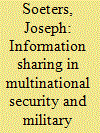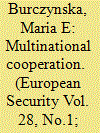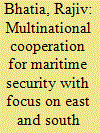| Srl | Item |
| 1 |
ID:
126548


|
|
|
|
|
| Publication |
2013.
|
| Summary/Abstract |
Political scientists have examined how domestic politics and the competition for international capital affect the setting of national tax rates. In this paper, I explore how political institutions, specifically the level of democracy, affect firm-level taxation across the world. I argue that electoral competition leads democratic governments to higher levels of taxation of firms. Using a data set on firm tax payments on the foreign affiliates of US multinational corporations from the US Bureau of Economic Analysis, I show that there are large variations within countries on the tax burdens faced by firms that are not explained by national tax rates. I find evidence that the mobility of the specific investment project, the types of spillovers these investments provide to a community, and attributes of the parent firm are all important determinants of taxation. While firm-level factors clearly affect corporate taxation, I argue that democratic institutions limit the offering of tax incentives and generate electoral benefits to policing tax avoidance by multinational corporations. After controlling for parent firm and foreign affiliate-level factors, I find that democratic countries generate as much as 26% more tax revenues from multinational corporations relative to authoritarian countries.
|
|
|
|
|
|
|
|
|
|
|
|
|
|
|
|
| 2 |
ID:
166589


|
|
|
|
|
| Summary/Abstract |
Military operations increasingly require cooperation between agencies within the same nation, but also collaboration with security and military organizations internationally. Throughout history multinational military cooperation has often been an appropriate way to conduct major operations; national manpower and material resources are generally insufficient to address the demands of missions worldwide. The desire to optimize the use of scarce research and development and investment capabilities, the need for international legitimacy and political support, and the fact that today’s risks transcend national borders, have rendered multinational cooperation in the security domain unavoidable. With joint operations comes the requirement for multi-partner- and multinational information sharing. However, information sharing has both advantages and costs, and is subject to both enabling factors as well as barriers. This paper reflects on theories, both classical and current, as well as empirical case studies, to examine the pros and cons of multinational information sharing, and the factors that conduce or interfere with the transmission and the receipt of intelligence. The importance of a holistic approach and of learning lessons learned are two key lessons gleaned from the analysis, along with an emphasis on developing both the organizational and the interpersonal enablers of information sharing.
|
|
|
|
|
|
|
|
|
|
|
|
|
|
|
|
| 3 |
ID:
164654


|
|
|
|
|
| Summary/Abstract |
European air power is represented by a variety of air forces, each equipped with different capabilities and facing different limitations. Developing the former and making up for the latter requires resources and finances and is not always possible within a national capacity. It may be particularly problematic for smaller air forces, especially with the trend of shrinking defence budgets and increasing costs of the newest technological achievements. This article investigates the idea of multinational cooperation in Europe as a way to make up for these shortfalls and build collective European capabilities. In doing so, it focuses on two states, namely Poland and Sweden as examples of small air forces. By choosing these countries as case studies it also provides an opportunity to investigate the different forms of multinational involvement existing within and outside a major military alliance, namely NATO. The article explores the participation of the Polish and Swedish Air Forces in several multinational initiatives and investigates how such involvement increases (or not) their capabilities.
|
|
|
|
|
|
|
|
|
|
|
|
|
|
|
|
| 4 |
ID:
109087


|
|
|